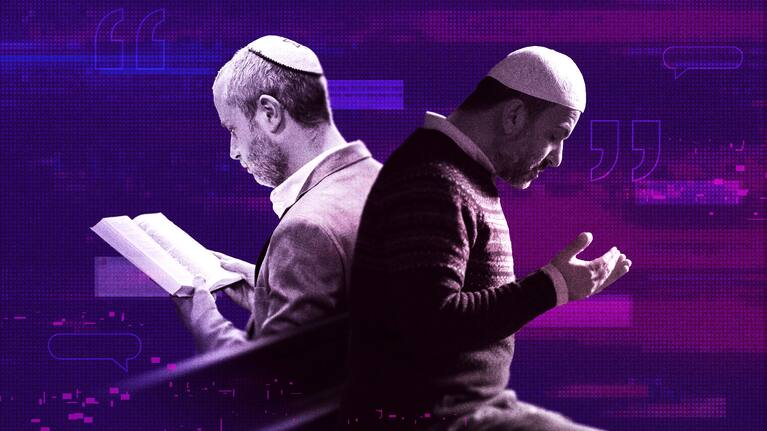Violent antisemitic and Islamophobic online content has increased in New Zealand since October 7, according to online observers.
The Department of Internal Affairs and The Disinformation Project have both confirmed the increase since Hamas’ unprecedented assault on Israel, and Israel’s bombardment of the Gaza Strip.
“This content is some of the most violent we have ever observed, and it is being shared widely across New Zealand on social media,” The Disinformation Project's director Kate Hannah said.
“It is showing up in places that you would not necessarily expect violent content to be.
“We are seeing it on X (formerly known as Twitter), Instagram, Snapchat, TikTok and gaming platforms that young people use.”
One of the dangers of this content, according to Hannah, is it often conflates identities in ways that can be racist, xenophobic and misinformed.

“We see a lot of conflating Hamas, the group, with all Palestinians, or conflating Hamas, the group, with all Muslims,” Hannah said.
“We also see conflating all Israelis, or the Israeli government, with all Jewish people.
“This is antisemitic, and it is xenophobic. It contributes to a sense of more division, both online and offline, for Aotearoa New Zealand.”

The Department of Internal Affairs' digital violent extremism team said it has also found an increase in Christchurch terrorist attack-like content.
It said where New Zealanders are sharing illegal content, it will investigate and promptly work with platforms to remove it.
The level of online hatred towards the Muslim community in New Zealand is something The Federation of the Islamic Associations of New Zealand said it has never seen before.

“The first Friday after the Hamas kidnapping, absolutely openly, we had someone post, ‘get a gun, go to the mosque’ that kind of thing,” FIANZ chairperson Abdur Razzaq said.
“The type of rhetoric is a call to action, opposed to the basic Islamophobic stuff, and that actually worries us quite a bit.
“The mis and disinformation out there is trying to get those people who are ill-informed, and that is provocation.”
Since October 7, the New Zealand Jewish Council said antisemitism has become even more vocal and violent both online and in real life.
“There are threats of violence, death threats, extreme abuse, that I can’t repeat,” the New Zealand Jewish Council spokesperson Juliet Moses said.
“You get called all sorts of names even if you support the right of Israel to exist,” Moses said.

“Jewish people are sort of held collectively accountable for the actions of the Israeli government.”
The social media landscape has also changed, according to Hannah, with accounts traditionally seen as left-wing incorporating antisemitism and white supremacist tropes.
“We have seen content from an established neo-Nazi group in Aotearoa being shared on X by people who have more progressive views, without acknowledging that the group who made the comments about a particular member of the Jewish community, are in fact neo-Nazis,” Hannah said.
Incite people towards hatred
She said violent content online, taken out of context, or framed as urgent or terrifying, can incite people toward more hatred and division in real life.
“When we have one group equated with all people who are Muslim, or Palestinian, and another group conflated in a similar way; 'all Jewish people are Zionists', then you have this increased danger or fear that all Jews, Muslims or Palestinians could be targets.”
Razzaq said the rise in violent rhetoric online is further evidence that religious groups must be protected from hate speech by law.
“We have no safety net if someone says something based on our faith. This is something the Royal Commission of Inquiry into the terrorist attack on Christchurch pointed out,” Razzaq said.
Current reforms of hate speech laws are with the Law Commission for review, with no time frame set.

The outgoing government made two attempts to amend laws around hate speech, including putting it into the Crimes Act, and amending the Human Rights Act to protect people based on religion.
Both faced objection by the free speech movement and were criticised for not including protection for the rainbow community.
“We want the government to take national security very seriously," Razzaq said.
"What we are now seeing is an escalation of provocation, an escalation of hate, and geopolitical issues are now impinging on New Zealand shores.
”Islamophobia feeds on ignorance. It feeds on people’s unknown fears. We don’t want what happened on March 15 to happen to any other community.”
Moses says the spike in online hatred has left some in the Jewish community fearful.
"Every Jewish person I talk to says the same thing, they’re very nervous, they’re looking over their backs, they’re worried for their safety," she said.
"We are worried this will manifest in actual violence on a person at some point if it keeps escalating, and no leaders or authorities are doing anything to dampen it down."




















SHARE ME